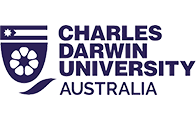Professor Katherine Andrews
Griffith University
 Professor Katherine Andrews is the Director Griffith Institute for Drug Discovery.
Professor Katherine Andrews is the Director Griffith Institute for Drug Discovery.
Katherine is an outstanding science communicator, having been involved in public outreach since 2008 and organizing many Outreach events both within her institution and externally. She is an internationally recognised scientist and has published >97 articles and has also been very successful in obtaining research funding. She has been CI on a range of grants from various funding bodies including NHMRC, ARC and Gates Grand Challenges totaling ~$14.6M.
She obtained a BSc Hons in 1990 and a PhD in 1998 in Microbiology from Griffith University. Katherine conducted postdoctoral research at the Queensland Institute of Medical Research (QIMR) before being awarded a prestigious Alexander von Humboldt Fellowship in 1998 to work on pregnancy malaria at the University of Heidelberg, Germany. Katherine returned to Queensland Institute of Medical Research (QIMR) in 2003, developing a research program focused on malaria drug discovery. During that time, she was the Executive Officer of the Griffith Medical Research College (2006-2009) and recipient of the Queensland Premiers Award for Medical Research. In 2009, Katherine returned to Griffith University as an ARC Future Fellow. She was awarded her professorship at the Griffith Institute for Drug Discovery in 2017. She also holds an Adjunct Scientist position at QIMR Berghofer Medical Research Institute since 2013. Between 2009-2011, Katherine served as the national Director of the Australian Society for Medical Research.
Katherine is a leading expert in the field of early phase antimalarial drug discovery and is committed to trying to improve the lives of people who suffer from this significant global health issue.
She leads research under two key research themes. The first focuses on the discovery and development of new drug leads for malaria prevention. Under this theme (funded by two current NHMRC Project grants on which she is CIA; ~$1.2million) she leads a team that is developing novel malaria prevention drug leads from a unique CSIRO chemical compound library comprising largely novel structures not previously reported in the literature. This is important, as any new drugs developed for malaria should ideally be different to those used currently in order to kill the parasite in new ways and to limit potential issues of cross-resistance with existing drugs. The second theme, focuses on the discovery and development of potential treatment drug leads, including novel fast killing chemotypes (NHMRC Project grant as CIA; ~$800K) and compounds that target epigenetic regulatory enzymes.


